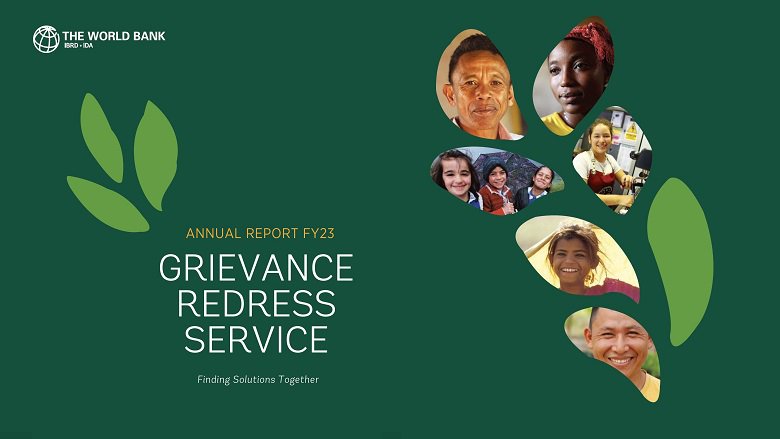The recently published FY23 Annual Report provides a comprehensive summary of the GRS’ positive track record in resolving cases in a sustainable manner. The report presents detailed statistics, including the number of complaints received, the number of admissible complaints, a comparison of admissible cases by Safeguards and ESF risk category, the categorization of new cases by Region and Global Practice (GP), and comparisons with previous years. The report also highlights key themes and emerging trends, case examples from each Region and an array of cases where solutions led to better development outcomes, including in Viet Nam, Türkiye, and Pakistan.
“Our track record demonstrates the effectiveness of the GRS and trust in responding to grievances swiftly and facilitating sustainable solutions,” said John Kellenberg, Manager, Grievance Redress Service, Operations Policy and Country Services (OPCS), World Bank. “Through our work, we also provide World Bank staff with critical insights to refine and improve the environmental and social aspects of new and existing operations, including IPFs and PforRs.”
The FY23 data reveals active use of the GRS in all seven regions that the World Bank works in, reflecting the GRS’s growing visibility. East Asia and the Pacific led with the highest number (36), followed by Western and Central Africa (27) and Latin America and the Caribbean (26). Consistent with past trends, over half of the new cases (90) involved land acquisition, resettlement, and compensation matters, while ten cases were related to labor issues and occupational health & safety. Furthermore, the Annual Report introduces an analysis of cases in the context of fragility, conflict, and violence (FCV), where project management and accountability pose unique challenges.
The Annual Report also details the communication and outreach efforts undertaken by the GRS in FY23. These include providing training sessions for Bank staff to enhance their understanding of the GRS’ role, increasing awareness among Borrowers and key stakeholders, and fostering collaboration with other multilateral finance institutions. For instance, the GRS held workshops with the European Bank of Reconstruction and Development (EBRD), the International Fund for Agricultural Development (IFAD) and the Inter-American Development Bank (IABD) in addition to IFC and MIGA.
“As we look ahead, we expect the GRS to play a vital role in the World Bank’s overall accountability framework by being fast and responsive and resolving problems quickly for the people and communities our projects serve,” said Ed Mountfield, Vice President, Operations Policy and Country Services (OPCS), World Bank.
The Annual Report underscores the crucial role of the GRS in continuing to promote a more accountable and transparent approach to Bank operations and in delivering on the Bank Group’s mission to end extreme poverty and boost shared prosperity on a livable planet.
To read the full text of the FY23 GRS Annual Report, please click here.

